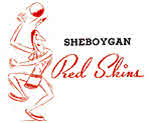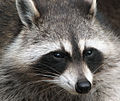 Several former Marquette University law students achieved fame on the athletic playing fields after their time at Marquette—world class sprinter Ralph Metcalfe and Packer star Laavie Dilweg come immediately to mind—but only one former student ever coached a team to the championship finals of the nation’s leading professional basketball league.
Several former Marquette University law students achieved fame on the athletic playing fields after their time at Marquette—world class sprinter Ralph Metcalfe and Packer star Laavie Dilweg come immediately to mind—but only one former student ever coached a team to the championship finals of the nation’s leading professional basketball league.
Francis “Frank” Zummach was born in Milwaukee in 1911, and attended Marquette University High School and Marquette University before enrolling in the law school in 1932. Taking advantage of a program that allowed Marquette undergraduates to enroll in the law school after three years of college, Zummach received his undergraduate degree in 1933 and his law degree in 1935.
Unlike most Marquette law students of that era, Zummach received a J.D. degree, rather than an L.L.B. In the 1930’s, Marquette awarded a more prestigious law degree (the J.D.) to graduates of the law school who also possessed an undergraduate degree and who prepared an acceptable thesis on a legal topic during the third year of law school. (Zummach was also among the first Marquette Law School graduates to take advantage of the diploma privilege.)
While a student at the law school he was widely recognized as a student leader, serving as the all-university junior class president and as a member of Interfraternity Council. (In the 1930’s, law students were much more integrated into the regular student body than they are today.) One of his fellow students at the law school was his former Marquette basketball teammate, Ed “Boops” Mullen, who has the distinction of being Marquette’s first ever basketball All-American.
The 5’10” Zummach joined the Marquette basketball team in 1930 as a college sophomore. His coach was the legendary Bill Chandler, who had just left Iowa State to take over the chronically weak Marquette basketball team. By mid-year, Zummach had played his way into the starting line-up, helping the Hilltoppers achieve their first winning season in nine years. He was made co-captain of the team the following year, and the local cagers compiled another winning record and nearly upset national champion Purdue, which was led by national player of the year John Wooden.
Zummach’s senior year, his first at the law school, was even better as the team went 14-3 with victories over Wisconsin, Notre Dame, Michigan State, and Indiana. After exhausting his eligibility as a player, Zummach became an assistant coach at Marquette and served in that capacity through the 1938-39 season, apparently while practicing law in Milwaukee. (As late as 1940, the Blue Book of College Athletics still listed Zummach as the assistant coach of the Marquette varsity.)
 Zummach’s connection to professional basketball begins in the fall of 1939, when he was offered the position as head coach of the Sheboygan Redskins of the National Basketball League. The Midwest-based National Basketball League, which was founded in 1937, was widely regarded at the time as the nation’s premier professional basketball league. Sheboygan had entered the league in the fall of 1938, but the Redskins had been a disappointing 13-17 in their inaugural season.
Zummach’s connection to professional basketball begins in the fall of 1939, when he was offered the position as head coach of the Sheboygan Redskins of the National Basketball League. The Midwest-based National Basketball League, which was founded in 1937, was widely regarded at the time as the nation’s premier professional basketball league. Sheboygan had entered the league in the fall of 1938, but the Redskins had been a disappointing 13-17 in their inaugural season.
The community-owned team turned to Zummach to improve the franchise’s on-court performance. Zummach accepted the position, which paid him $500 to coach the team and $100 to serve as its legal counsel, and moved his law practice to Sheboygan, where he opened a law office in the Security National Bank Building.
In rebuilding the Redskins, Zummach recruited heavily from the ranks of Marquette’s basketball alumni, and the 1939-40 team included five former Hilltoppers. (Unfortunately, he was not able to recruit his former teammate Boops Mullen, who already played for the NBL’s Oshkosh All-Stars.)
In his first year as a professional coach, Zummach’s team compiled a respectable regular-season record of 15-13, which was good enough for a first place tie with Oshkosh in the highly competitive Western Conference of the ABL. In-state rivals Sheboygan and Oshkosh, which was led by three-time MVP and league scoring leader Leroy Johnson, squared off in the first round of the NBL play-offs. The team split the first two games of the series, but the All-Stars edged Zummach’s Redskins by a score of 31-29 in the third and final game.
The next year the NBL abandoned the two-conference format, and Zummach’s Redskins finished with a record of 13-11, which was good enough for a tie for second in the seven-team league. In the first round of the play-offs, Sheboygan defeated the Akron Firestone Non-skids two games to zero, setting up a rematch with Oshkosh, which had won the regular season and defeated the Detroit Eagles in the other play-off series.
Much of the credit for the Sheboygan team’s success was attributed to Zummach’s skillful coaching. On the eve of the Sheboygan-Oshkosh play-off series, the Milwaukee Sentinel wrote, “Team play and spirit, stout hearts and an excellent coaching job by Frank Zummach have combined to put the Redskins among the cage elite.” (Milwaukee Sentinel, March 11, 1941.) Unfortunately, the All-Stars, playing in their fourth consecutive NBL final, again proved to be too much for the Redskins, as Zummach’s cagers fell to Oshkosh by scores of 53-38 and 54-36 in the best of three series.
Although all of Zummach’s teams at Marquette and Sheboygan were all-white, he was not insensitive to the plight of black athletes. Prior to the 1940-41 season, the Redskins hosted an exhibition game against the renown Harlem Globetrotters. At first it appeared that the all-black Globetrotters would have nowhere to stay—in this era, Sheboygan had a reputation for being particularly inhospitable to African-Americans—but Zummach’s efforts one of the Sheboygan hotels was persuaded to provide rooms for the visiting team.
In 1941-42, the Redskins slumped to a 10-14 record and a fifth-place finish, thus missing the play-offs for the first time in Zumbach’s tenure with the team. Although the Redskins continued to play well at home, they won only two of eleven road games that season. At the conclusion of the season Zummach stepped down as head coach to concentrate on his law practice.
Using many of the players that Zumback had recruited, his successor, former player Carl Roth, led Sheboygan to the 1943 NBL championship by defeating Oshkosh and the Ft. Wayne Zollner Pistons (now the Detroit Pistons) in the play-offs. The Redskins remained one of the dominant teams in the NBL until 1949 when the NBL merged with the Basketball Association of America to form the National Basketball Association. Sheboygan was a charter member of the NBA, but the problems of competing against teams in much larger cities led it to drop out of the league after the 1949-50 season.
After stepping down as coach of the Redskins, Zummach remained in Sheboygan where he formed the long-standing law partnership of Wolters & Zummach in 1945. He was also an active member of the Wisconsin Bar Association. Although he is currently retired at age 100, Martindale.com still lists him as a practicing lawyer in Sheboygan. He is currently the oldest living former Marquette University basketball player and the only professional basketball coach from the 1930’s that is still alive.


 Zummach’s connection to professional basketball begins in the fall of 1939, when he was offered the position as head coach of the Sheboygan Redskins of the National Basketball League. The Midwest-based National Basketball League, which was founded in 1937, was widely regarded at the time as the nation’s premier professional basketball league. Sheboygan had entered the league in the fall of 1938, but the Redskins had been a disappointing 13-17 in their inaugural season.
Zummach’s connection to professional basketball begins in the fall of 1939, when he was offered the position as head coach of the Sheboygan Redskins of the National Basketball League. The Midwest-based National Basketball League, which was founded in 1937, was widely regarded at the time as the nation’s premier professional basketball league. Sheboygan had entered the league in the fall of 1938, but the Redskins had been a disappointing 13-17 in their inaugural season.